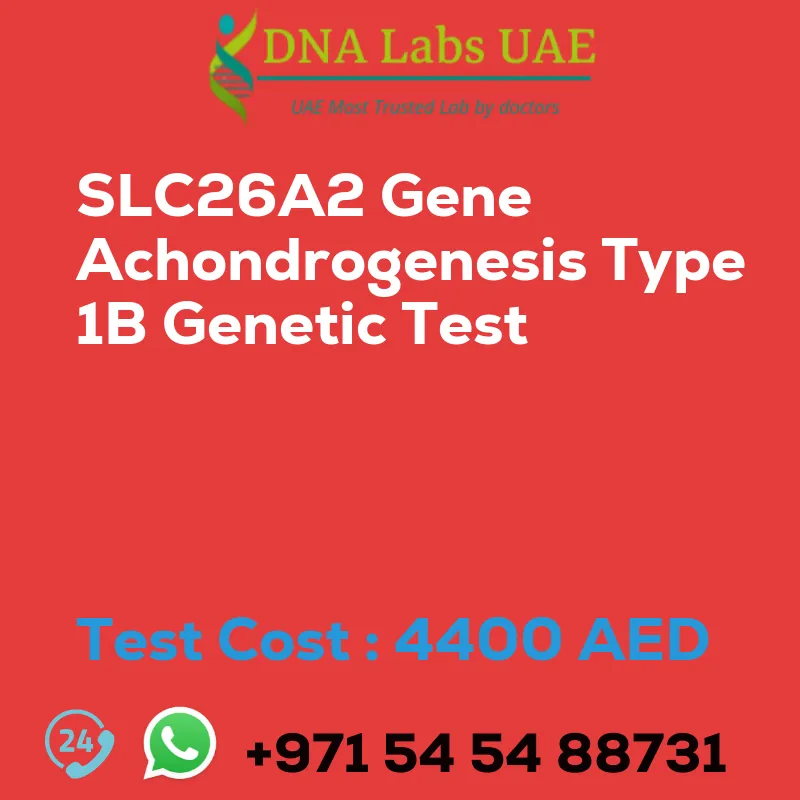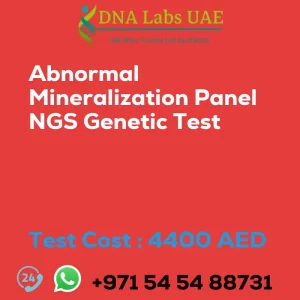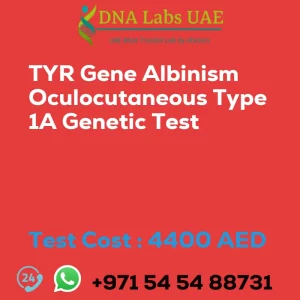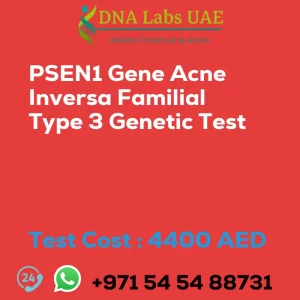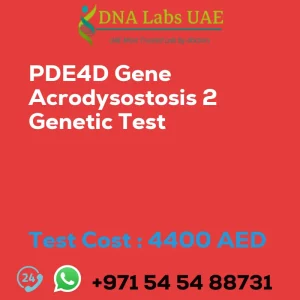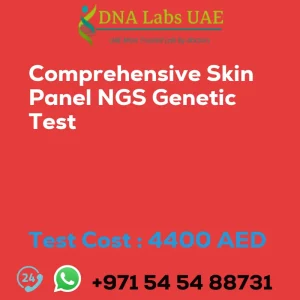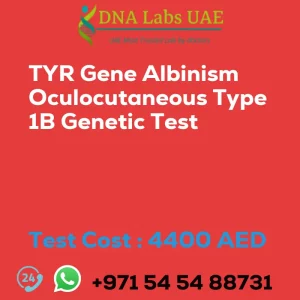SLC26A2 Gene Achondrogenesis type 1B Genetic Test
At DNA Labs UAE, we offer the SLC26A2 Gene Achondrogenesis type 1B Genetic Test. This test is designed to detect mutations in the SLC26A2 gene, which is responsible for producing a protein called diastrophic dysplasia sulfate transporter (DTDST). Mutations in this gene can lead to a rare genetic disorder known as achondrogenesis type 1B.
Test Details
Achondrogenesis type 1B is a severe skeletal dysplasia characterized by severe short stature, abnormal bone development, and other skeletal abnormalities. It is an autosomal recessive disorder, meaning that both copies of the SLC26A2 gene must have mutations in order for the disorder to be present.
Our SLC26A2 Gene Achondrogenesis type 1B Genetic Test utilizes NGS (Next-Generation Sequencing) technology, which allows for the simultaneous analysis of multiple genes, including the SLC26A2 gene. This powerful tool can identify various mutations in the gene, helping to diagnose achondrogenesis type 1B.
Test Components and Price
- Test Name: SLC26A2 Gene Achondrogenesis type 1B Genetic Test
- Components: NGS Technology
- Price: 4400.0 AED
- Sample Condition: Blood or Extracted DNA or One drop Blood on FTA Card
- Report Delivery: 3 to 4 Weeks
- Test Type: Osteology Dermatology Immunology Disorders
- Doctor: Dermatologist
- Test Department: Genetics
Pre Test Information
Prior to undergoing the SLC26A2 Gene Achondrogenesis type 1B Genetic Test, it is important to provide the clinical history of the patient. Additionally, a Genetic Counselling session may be conducted to draw a pedigree chart of family members affected with the SLC26A2 Gene Achondrogenesis type 1B NGS Genetic DNA Test gene SLC26A2.
Importance of Genetic Testing
Genetic testing plays a crucial role in diagnosing achondrogenesis type 1B. By sequencing the DNA of an individual, specific mutations or changes in the SLC26A2 gene can be identified, confirming the diagnosis and providing information about the specific mutations present. This information can guide treatment options and genetic counseling.
It is important to note that achondrogenesis type 1B is a rare disorder. Therefore, genetic testing should be performed by a qualified healthcare professional or genetic counselor who specializes in genetic disorders. They can provide more information about the specific genetic test, its benefits, limitations, and implications for individuals and families.
| Test Name | SLC26A2 Gene Achondrogenesis type 1B Genetic Test |
|---|---|
| Components | |
| Price | 4400.0 AED |
| Sample Condition | Blood or Extracted DNA or One drop Blood on FTA Card |
| Report Delivery | 3 to 4 Weeks |
| Method | NGS Technology |
| Test type | Osteology Dermatology Immunology Disorders |
| Doctor | Dermatologist |
| Test Department: | Genetics |
| Pre Test Information | Clinical History of Patient who is going for SLC26A2 Gene Achondrogenesis type 1B NGS Genetic DNA Test. A Genetic Counselling session to draw a pedigree chart of family members affected with SLC26A2 Gene Achondrogenesis type 1B NGS Genetic DNA Test gene SLC26A2 |
| Test Details |
The SLC26A2 gene is responsible for producing a protein called diastrophic dysplasia sulfate transporter (DTDST). Mutations in this gene can lead to a rare genetic disorder known as achondrogenesis type 1B. Achondrogenesis type 1B is a severe skeletal dysplasia characterized by severe short stature, abnormal bone development, and other skeletal abnormalities. It is an autosomal recessive disorder, meaning that both copies of the SLC26A2 gene must have mutations in order for the disorder to be present. NGS (Next-Generation Sequencing) genetic testing is a type of genetic testing that allows for the simultaneous analysis of multiple genes, including the SLC26A2 gene. It is a powerful tool that can identify various mutations in the gene, helping to diagnose achondrogenesis type 1B. NGS genetic testing involves sequencing the DNA of an individual, looking for specific mutations or changes in the SLC26A2 gene. This can help confirm a diagnosis, provide information about the specific mutations present, and guide treatment options and genetic counseling. It is important to note that achondrogenesis type 1B is a rare disorder, and genetic testing should be performed by a qualified healthcare professional or genetic counselor who specializes in genetic disorders. They can provide more information about the specific genetic test, its benefits, limitations, and implications for individuals and families. |

